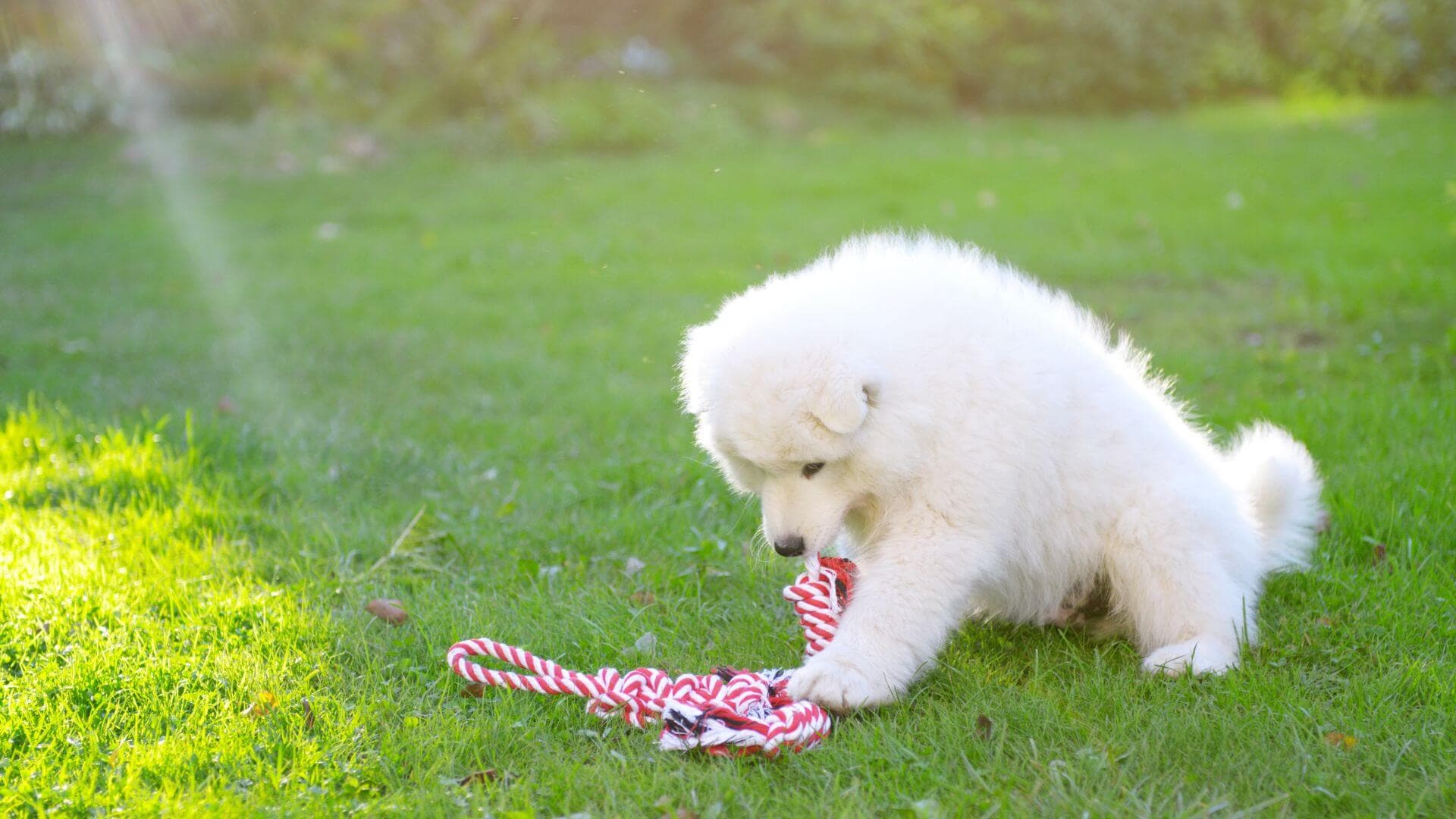
How to Re-home Your Pet [Step-by-Step Guide]
Find out how to re-home your pet responsibly. Learn the steps to ensure a safe and smooth transition for your pet into a new loving home.

Find smiling Samoyeds needing new homes. Connect directly with owners who need to rehome their fluffy companions.
Discover the joy of welcoming a smiling Arctic companion into your family
When you adopt a Samoyed, you're welcoming a gentle soul with the famous "Sammy smile" that brightens every day. These magnificent Arctic dogs bring unmatched loyalty, playful energy, and a fluffy white coat that becomes a source of pride through grooming rituals. Their social nature and friendly disposition make them perfect family companions who thrive on love and interaction.
Samoyeds are incredibly social dogs who love meeting people and making friends. Their gentle nature makes them wonderful therapy dogs and family companions.
Known for their perpetual "Sammy smile," these dogs radiate happiness and joy. Their upturned mouth corners aren't just cute - they prevent drooling in Arctic conditions.
Their stunning white double coat is more than beautiful - it's a bonding opportunity. Weekly grooming sessions become cherished moments of connection.
Patient with children and friendly with everyone, Samoyeds make excellent family dogs who alert you to visitors while maintaining their sweet temperament.
Understanding adoption fees and what's included
Prime age for adoption - past puppy phase but still young
Typically Includes:
Mature dogs with established temperaments
Typically Includes:
Loving seniors needing comfortable retirement homes
Typically Includes:
Dogs with health issues or grooming neglect
Typically Includes:
Adopting an adult Samoyed saves you 60-80% compared to purchasing a puppy, typically $900-$2,500 in savings. You'll know their exact personality, grooming needs, and temperament - no surprises, just pure companionship.
Give a smiling companion a second chance at happiness
From search to forever home - your pet adoption journey in 4 simple steps
Browse through verified pets looking for their forever homes in your area
Message owners directly to learn about the pet's personality and needs
Arrange a safe meeting to see if you and the pet are a perfect match
Complete the adoption process and give a loving pet their forever home
Browse through verified pets looking for their forever homes in your area
Message owners directly to learn about the pet's personality and needs
Arrange a safe meeting to see if you and the pet are a perfect match
Complete the adoption process and give a loving pet their forever home
The trusted platform connecting loving homes with pets in need
All pets and owners are verified, ensuring safe and transparent adoptions.
Communicate directly with current owners to understand each pet's unique story.
Find adoptable pets in your area for convenient meetings and visits.
Access health records, behavioral notes, and care requirements upfront.
Thousands of loving pets are waiting for their forever homes.
Start AdoptingReal stories from dog owners who found perfect companions on Petmeetly
I met Aoife and her family and decided to adopt her from them that day. She’s a dream puppy!
Cynthia
New York, US
Jade (the adopter) has Lula, and Lula is doing great
Sheila Ramos
Florida, US
I love this site! I would never use anything else for my Holly.
Marsha Mohan
Illinois, US
Simple steps to bring your fluffy companion home
Day 1-2
Day 3-5
Week 1-2
Week 2
Week 2-3
Week 3-4
Everything you need for a perfect match with your Samoyed
Create the perfect environment for your new family member
Proactive care for your Samoyed's optimal health
Maintain healthy joints through proper nutrition, regular exercise, and preventive care.
Weekly grooming keeps their beautiful coat healthy and prevents matting while strengthening your bond.
Arctic breeds thrive in cool environments - ensure air conditioning and shaded areas for comfort.
Regular eye checks and protection from UV rays keep their vision healthy throughout life.
Daily exercise and mental stimulation keep your Samoyed happy, healthy, and well-behaved.
Expert advice and insights on responsible pet care

Find out how to re-home your pet responsibly. Learn the steps to ensure a safe and smooth transition for your pet into a new loving home.

Download our complete dog adoption checklist to prepare for your new pet. Ensure a smooth, joyful transition into your loving home.
Get answers to common questions about adopting Samoyeds responsibly
Samoyeds become available for adoption when life circumstances change. These amazing dogs bring their famous 'Sammy smile' and gentle nature to new families. Each dog is unique, often well-trained and socialized, simply looking for their next loving home where their fluffy coat and friendly personality will be cherished.
Adoption fees typically range from $150-$800. Young adults (1-3 years): $300-$800. Adults (3-7 years): $250-$700. Seniors (8+ years): $150-$400. Special needs often free-$400. These fees include comprehensive medical care, vaccinations, and support. You're investing in a lifetime of companionship while saving 60-80% compared to purchasing a puppy.
Absolutely! Rescued Samoyeds make wonderful family members. They're gentle, friendly companions known for their famous 'Sammy smile' and loving nature. Benefits include established temperaments, past the puppy phase, and often well-trained. Their beautiful double coat becomes a bonding opportunity through grooming, and their social nature brings joy to active families who appreciate their Arctic heritage.
Samoyeds are beautiful Arctic dogs with fluffy white coats that require regular grooming - about 3 hours weekly of brushing becomes quality bonding time. They thrive in cool climates with air conditioning, love being part of family activities, and bring their famous smile everywhere. Perfect for families who enjoy grooming rituals, appreciate their social nature, and want an active, friendly companion for 12-14 years of adventures.
Find loving dogs of various breeds waiting for their forever homes
Give a smiling companion the second chance they deserve. Your fluffy friend is waiting.